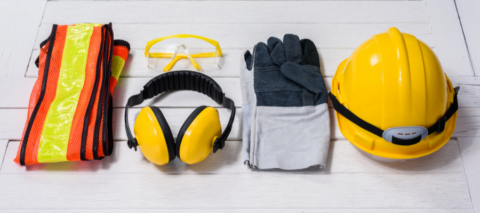There are many dangers to working in the heat. While people typically think about this problem during the summertime, heat-related illnesses are a problem many workers face every day, all year long. Heat-related illness is a general term for a number of conditions that happen as the result of working in a hot—or often humid—environment. There are four common types of these illnesses, each with its own prevention strategy.
Heat Rash
A heat rash is small red spots or bumps on areas where clothing is most constricting (like the neck, back and arms). To prevent a heat rash, it’s important to wear the appropriate type of clothing for hot conditions so you won’t overheat. Typically, a heat rash will go away once the skin has been cooled and dried.
Heat Cramps
Heat cramps are painful muscle spasms that happen during intense physical activity in hot weather. Preventing heat cramps starts with drinking lots of water before and during the physical activity. When heat cramps do happen, be sure to drink plenty of water, rest, and try to fix the body’s electrolyte levels by also drinking a sports beverage like Gatorade or Powerade.
Heat Exhaustion
Heat exhaustion usually leads to heat stroke and happens as a result of exposure to extreme heat and humidity. Staying hydrated is one of the best ways to avoid heat exhaustion. If heat exhaustion is suspected, call 911 immediately and try to cool the worker as much as possible by:
- Removing any unnecessary clothing
- Use a cold compress
Heat Stroke
The most serious heat-related illness is a heat stroke. It can occur when the body’s ability to regulate its temperature completely fails. If a worker is experiencing a heat stroke, it’s critical call 911 immediately and stay with the worker until help arrives. In the meantime, do the following:
- Move the worker to a cooler area
- Remove any unnecessary clothing
- Give the worker a cold compress to try to speed the cooling process
It’s critical to do everything possible to prevent workers from experiencing heat stress and heat-related illnesses. At OHC, we believe the best way to avoid heat stress is by having a prevention plan in place. We can work with you to develop a prevention strategy that works for your employees and your business. Give us a call today.







